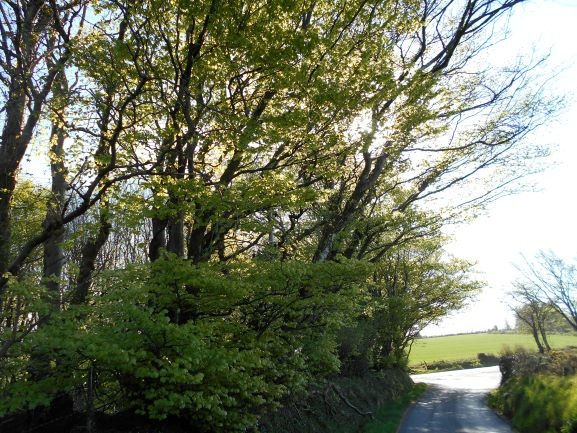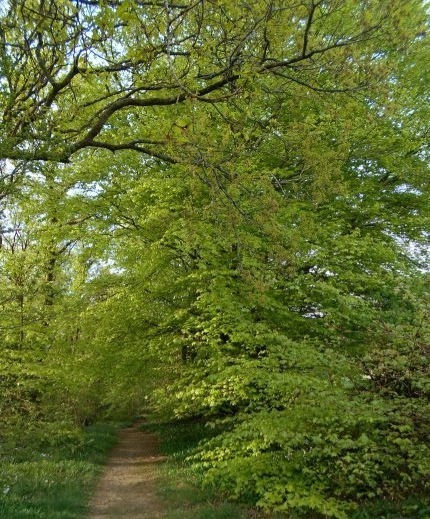Beech, Our Unexpected Harvest
- GBC

- Apr 29, 2020
- 2 min read
by Louise Cartwright
'Fagus Sylvatica' otherwise known as beech, an impressive and dominant feature in many woodlands across Pembrokeshire. Truly native to parts of southern England and south east Wales, with some specimens growing to 35 metres. For what it gains in height however, it lacks in longevity. With 150 to 200 years being its maximum age, it's relatively youthful for a deciduous tree. The outstanding feature of Beech, is its great tolerance to shade. It is reputed to be the most tolerant of any British tree except yew (Savill, 2013). Not only are beech shade tolerant but they cast dense shade and produce copious leaf litter. This means that comparatively little grows underneath them and no other tree species can compete.

This being said, there are a select group of specialists which find beech woodlands to their liking. Notably orchids (helleborines) of the genera 'Epipactis' and 'Cephalanthera' which favour the clearings. Also, the 'saprophytic' Birds nest orchid, which derives it's nourishment from dead or decaying matter. Few insects feed on the leaves of beech, a notable exception being the larva of the Lobster Moth. What the beech lacks in insect life however, it gains in the fungal kingdom. Strolling through a beech woodland in Autumn, you may come across the Death Cap, Satan's Bolete, Porcelain Fungus and Artist's Bracket. This motley bunch, being reasonably beech specific. After the flush of fungi in Autumn, our feathered friends move in, with Chaffinches and Bramblings feeding on the brown spiky shells which house the beech nut, otherwise known as beech masts (Sterry 2007).
The 'Unexpected Harvest', for us, is their luminescent spring leaves, which can be made into a 'Noyau' – typically a liqueur made from brandy, flavoured with nut kernels. Beech leaf noyau has the addition of gin and sugar, where the young leaves are steeped in gin for a period of weeks infusing the gin with their tangy flavour.

Beech Leaf Noyau – Adapted from WildFoodsUk and Frontier Bushcraft
Serves : 1+ Prep : 20 minutes Leave for : 3 weeks & 3 months.
Ingredients
Young, tender, translucent beech leaves, enough to fill two empty 1 litre bottles.
750ml bottle of gin,
450ml of brandy,
400g granulated sugar dissolved in 450ml of warm water,
2 empty, sterile 1 litre bottles.
Method
Fill the empty bottles with the beech leaves and divide the gin between the two bottles,
Leave the bottles in a dark place for three weeks,
After three weeks, strain the liquid, squeezing the beech leaves to ensure as much liquid is extracted as possible,
Add the brandy, the sugar water and refill the bottles,
Leave the liqueur for 3 months before drinking.
Bibliography
Savill, P (2013) The Silviculture of Trees Used in British Forestry 2nd Ed, Wallingford, CABI,
Sterry, P (2007) Collins Complete Guide to British Trees, London, HarperCollins Publishers Ltd,
Delaney, A (2020) Frontier Bushcraft Wilderness Skills & Adventure, Beech Leaf Noyau – A delectable Botanical Infusion http://frontierbushcraft.com/2018/07/19/beech-leaf-noyau/, 21st April 2020,
Wild Food UK (2020) Beech Leaf Noyau, https://www.wildfooduk.com/wild-food-recipes/beech-leaf-noyau/, 21st April 2020.










Comments